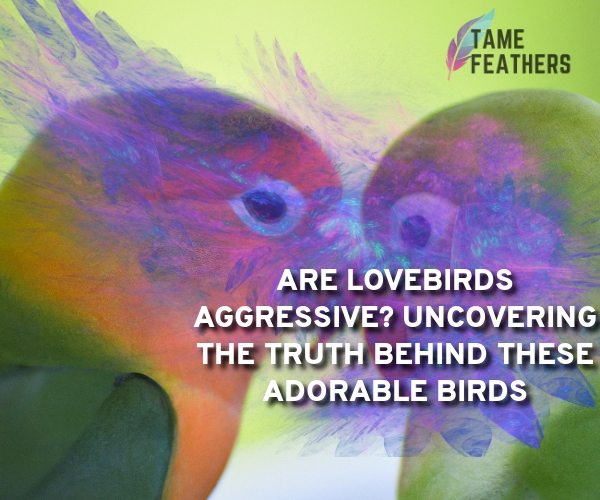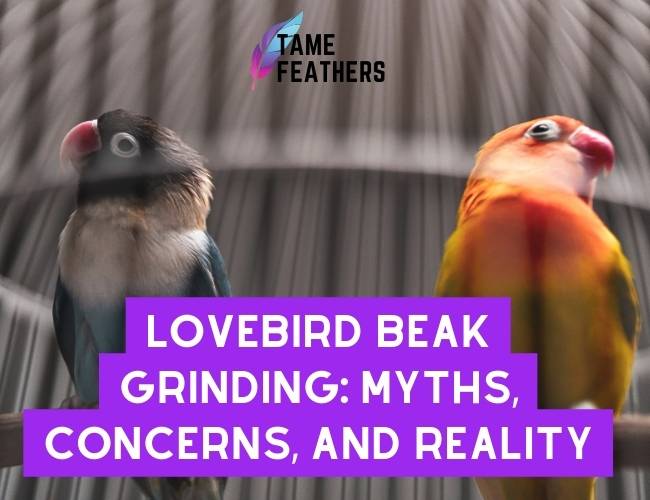Do Lovebirds Show Aggressive Behavior?
Lovebirds are known for their affectionate natures and beautiful, colorful plumage.But do they have a dark side? Do lovebirds show aggressive behavior towards humans or other birds? The answer is yes – but not all the time.
In some cases, lovebirds can be quite territorial and even display aggressive behaviors such as biting, chasing after other animals or people, screeching loudly, and flapping their wings.
This kind of aggression is usually seen when a bird feels threatened or scared in its environment.
It’s important to remember that this type of behavior isn’t typical of all lovebirds; it mainly occurs in certain types of birds with particularly strong personalities.
However, while some individual birds may display aggression from time to time due to environmental factors or stressors in the home (such as overcrowding), most lovebird species remain relatively laid-back and non-confrontational overall.
In fact, these adorable little parrots tend to be quite friendly and affectionate with their owners – if given enough space and attention!
What Causes Lovebird Aggression?
The causes behind an individual bird’s aggressive behavior can vary greatly depending on the situation at hand.In many cases, it could simply stem from fear: if your bird perceives a threat (whether real or imagined) nearby then it might react by attacking whatever appears dangerous to them – including you! Similarly, if there’s too much activity going on around them (or too many people), this could also cause them to feel stressed out which can lead to aggression over time as well.
Other potential causes include improper care such as malnutrition/lack of exercise; overcrowding/overstimulation; hormonal changes due to breeding season; lack of socialization with others etc.
.
.
Also keep in mind that certain breeds like Fischer’s Lovebird may naturally possess more dominant personalities so they will require extra patience when training/socializing them properly! Finally, it should be noted that despite common beliefs about “lovey dovey” attitudes among pet owners towards their feathered friends – proper discipline must still be enforced when dealing with any type of animal including parrots like lovebirds! If your bird displays signs of aggression then you should take steps immediately address the issue before it escalates further down the line.
.
.
.
How To Handle Aggressive Lovebird Behavior
Your first priority should always be safety — both yours and your pet’s — so make sure everyone involved is aware that a potentially dangerous situation exists whenever handling an aggressive animal like a lovebird .Then follow these tips below for best results : • Take note of what triggered the outburst: Was there an external factor causing stress for your pet ? Is someone else present who might scare off your feathered friend ? Is something wrong health wise ? By understanding why your pet acted aggressively , you’ll better know how best handle future episodes .
• Provide ample space & stimulation: A crowded cage will only add fuel fire since there won’t room escape threats nor enough entertainment keep boredom away ! Consider investing larger enclosure plus toys swings perches etc …just ensure everything doesn’t overwhelm one spot otherwise create clutter & chaos instead ! • Avoid punishment : Your natural instinct may tell punish bad behaviors however doing so only worsen matters because birds don’t understand human language logic ; rather think positive reinforcement reward good deeds instead rewards make learning easier & faster ! Plus they’re happier being praised than scolded anyway 😉





